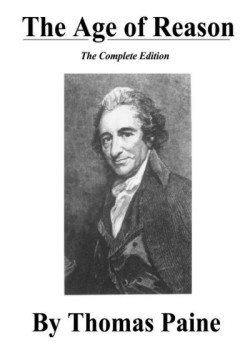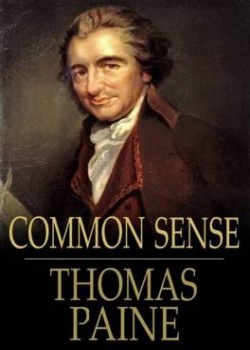CONSTITUTION OF THE UNITED STATES
CHAPTER XXXV
PROHIBITIONS ON THE STATES
§ 1406. The next clause of the constitution is:
"No state shall, without the consent of congress, lay any duty on tonnage; keep troops, or ships of war in time of peace; enter into any agreement or compact with another state, or with a foreign power, or engage in war, unless actually invaded, or in such imminent danger, as will not admit of delay."
§ 1407. The first part of this clause, respecting laying a duty on tonnage, has been already considered. The remaining clauses have their origin in the same general policy and reasoning, which forbid any state from entering into any treaty, alliance, or confederations and from granting letters of marque and reprisal. In regard to treaties, alliances, and confederations they are wholly prohibited. But a state may, with the consent of congress, enter into an agreement, or compact with another state, or with a foreign power. What precise distinction is here intended to be taken between treaties, and agreements, and compacts is nowhere explained; and has never as yet been subjected to any exact judicial, or other examination. A learned commentator, however, supposes, that the former ordinarily relate to subjects of great national magnitude and, importance, and are often perpetual, or for a great length of time; but that the latter relate to transitory, or local concerns, or such, as cannot possibly affect any other interests, but those of the parties. But this is at best a very loose, and unsatisfactory exposition, leaving the whole matter open to the most latitudinarian construction. What are subjects of great national magnitude and importance? Why may not a compact, or agreement between states, be perpetual? If it may not, what shall be its duration? A, re not treaties often made for short periods, and upon questions of local interest, and for temporary objects?
§ 1408. Perhaps the language of the former clause may be more plausibly interpreted from the terms used, "treaty, alliance, or confederation," and upon the ground, that the sense of each is best known by its association (noscitur a sociis) to apply to treaties of a political character; such as treaties of alliance for purposes of peace and war; and treaties of confederation, in which the parties are leagued for mutual government, political co-operation, and the exercise of political sovereignty; and treaties of cession of sovereignty, or conferring internal political jurisdiction, or external political dependence, or general commercial privileges. The latter clause, "compacts and agreements," might then very properly apply to such, as regarded what might be deemed mere private rights of sovereignty; such as questions of boundary; interests in land, situate in the territory of each other; and other internal regulations for the mutual comfort, and convenience of states, bordering on each other. Such compacts have been made since the adoption of the constitution. The compact between Virginia and Kentucky, already alluded to, is of this number. Compacts, settling the boundaries between states, are, or may be, of the same character. In such cases, the consent of congress may be properly required, in order to check any infringement of the rights of the national government; and at the same time a total prohibition, to enter into any compact or agreement, might be attended with permanent inconvenience, or public mischief.
§ 1409. The other prohibitions in the clause respect the power of making war, which is appropriately confided to the national government. The setting on foot of an army, or navy, by a state in times of peace, might be a cause of jealousy between neighbouring states, and provoke the hostilities of foreign bordering nations. In other cases, as the protection of the whole Union is confided to the national arm, and the national power, it is not fit, that any state should possess military means to overawe the Union, or to endanger the general safety. Still, a state may be so situated, that it may become indispensable to possess military forces, to resist an expected invasion, or insurrection. The danger may be too imminent for delay; and under such circumstances, a state will have a right to raise troops for its own safety, even without the consent of congress. After war is once begun, there is no doubt, that a state may, and indeed it ought to possess the power, to raise forces for its own defence; and its co-operation with the national forces may often be of great importance, to secure success and vigour in the operations of war. The prohibition is, therefore, wisely guarded by exceptions sufficient for the safety of the states, and not justly open to the objection of being dangerous to the Union.
§ 1410. In what manner the consent of congress is to be given to such acts of the state, is not positively provided for. Where an express consent is given, no possible doubt can arise. But the consent of congress may also be implied; and, indeed, is always to be implied, when congress adopts the particular act by sanctioning its objects, and aiding in enforcing them. Thus, where a state is admitted into the Union, notoriously upon a compact made between it and the state, of which it previously composed a part; there the act of congress, admitting such state into the Union, is an implied consent to the terms of the compact. This was true, as to the compact between Virginia and Kentucky, upon the admission of the latter into the Union; and the like rule will apply to other states, such as Maine, more recently admitted into the Union.
§ 1411. We have thus passed through the positive prohibitions introduced upon the powers of the states. It will be observed, that they divide themselves into two classes; those, which are political in their character, as an exercise of sovereignty; and those, which more especially regard the private rights of individuals. In the latter, the prohibition is absolute and universal. In the former, it is sometimes absolute and sometimes subjected to the consent of congress. It will, at once, be perceived, how full of difficulty and delicacy the task was to reconcile the jealous tenacity of the states over their own sovereignty, with the permanent security of the national government, and the inviolability of private rights, The task has been accomplished with eminent success. If every thing has not been accomplished, which a wise forecast might have deemed proper for the preservation of our national rights and liberties, in all political events, much has been done to guard us against the most obvious evils, and to secure a wholesome administration of private justice. To have attempted more, would probably have endangered the whole fabric; and thus have perpetuated the dominion of misrule and imbecility.
§ 1412. It has been already seen, and it will hereafter more fully appear, that there are implied, as well as express, prohibitions in the constitution upon the power of the states. Among the former, one clearly is, that no state can control, or abridge, or interfere with the exercise of any authority under the national government. And it may be added, that state laws, as, for instance, state statutes of limitations, and state insolvent laws, have no operation upon the rights or contracts of the United States.
§ 1413. And here end our commentaries upon the first article of the constitution, embracing the organization and powers of the legislative department of the government, and the prohibitions upon the state and national governments. If we here pause, but for a moment, we cannot but be struck with the reflection, how admirably this division and distribution of legislative powers between the state and national governments is adapted to preserve the liberty, and promote the happiness of the people of the United States. To the general government are assigned all those powers, which relate to the common interests of all the states, as comprising one confederated nation. While to each state is reserved all those powers, which may affect, or promote its own domestic interests, its peace, its prosperity, its policy, and its local institutions. At the same time, such limitations and restraints are imposed upon each government, as experience has demonstrated to be wise to control any public functionaries, or as are indispensable to secure the harmonious operations of the Union.
§ 1414. A clause was originally proposed, and carried in the convention, to give the national legislature a negative upon all laws passed by the states, contravening, in the opinion of the national legislature, the articles of the Union, and treaties subsisting under its authority. This proposition was, however, afterwards negatived; and finally abandoned. A more acceptable substitute was found in the article, (hereafter to be examined,) which declares, that the constitution, laws, and treaties of the United States shall be the supreme law of the land.







The most important project on this website is "THE WORKS."
This is the place where you can read the words of the founding fathers and those who had a VERY BIG part in the founding of this country.
Not only do we have the Federalist and the Anti-Federalist Papers, but we also have other Constitutional Commentaries that were written shortly after the Constitution was ratified.